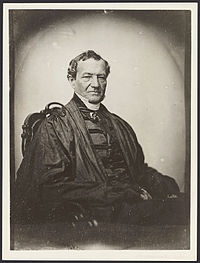Post Author: Bill Pratt
Some of the atheists that have commented on the blog have expressed skepticism at the existence of Jesus, claiming that there is very little or even no good evidence for him being a real historical figure. My response has been to point out that Jesus is the most well attested historical figure of ancient history and that no reputable historian doubts his existence. Uninterested in what historians have to say, these skeptics continue to hold their position.
What is especially ironic is that many of the skeptics who doubt the historical scholars are also the same people who chide me for doubting Darwin’s historical account of the origins of species over the past 4.5 billion years of earth’s history. I guess it’s OK to doubt professional historians, but not professional paleontologists.
In any case, this week I came across a fascinating radio interview that bears on this issue of the existence of Jesus. The interviewer is an atheist named Infidel Guy and he is questioning New Testament (NT) scholar and agnostic Bart Ehrman. Ehrman has written several books pointing out discrepancies and errors that exist in the Greek NT manuscripts. He is not a Christian and he believes that some of the things recorded about Jesus in the NT are legendary.
What is fascinating about this interview is that Ehrman finds himself arguing with the Infidel Guy that Jesus actually exists! Ehrman, as a scholar, knows that the idea that Jesus never existed is ridiculous and that no serious scholar holds this position. For 16 minutes he tries to convince the Infidel Guy, but to no avail.
Maybe the fact that Bart Ehrman, hero for skeptics of Christianity, has attempted to put this silly notion to rest will influence some atheists who continue to cling to this idea. We’ll see! In the mean time, please take a listen to the interview below which is broken into 2 parts.
httpv://www.youtube.com/watch?v=yRx0N4GF0AY&feature=related
httpv://www.youtube.com/watch?v=8SIhX4BWCPU&feature=related


 In parts
In parts  In parts
In parts  In part 1,
In part 1,